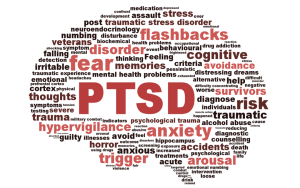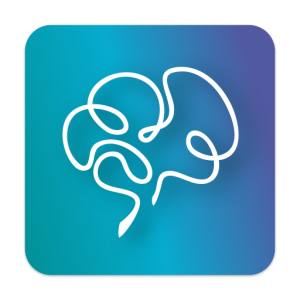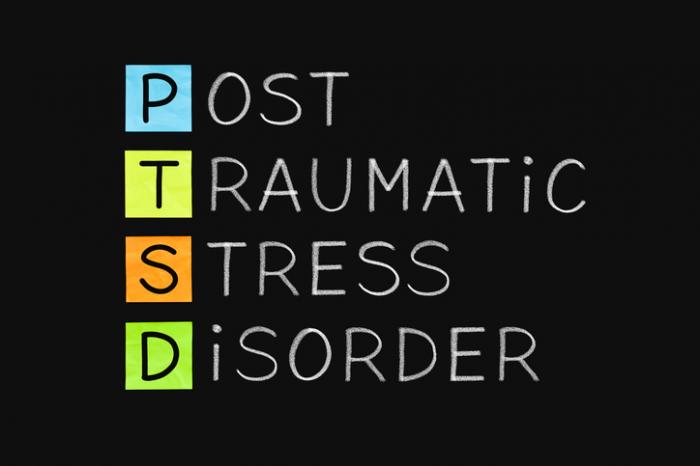Post-traumatic stress disorder is a serious mental health condition that can occur after someone has experienced or witnessed a traumatic event. It makes you think about the bad thing over and over again, and it can make you feel scared, upset, or angry. Symptoms of PTSD can be very disruptive and interfere with daily life. If you are experiencing symptoms of PTSD, it is important to seek help from a mental health professional and go for a PTSD test. In this article, we will discuss how to diagnose and treat post-traumatic stress disorder.
Contents
What is PTSD?

PTSD is a mental health disorder that can occur after someone has experienced or witnessed a traumatic event. The symptoms of PTSD can include flashbacks, nightmares, and intrusive thoughts. People may avoid anything that reminds them of the traumatic event.
How do you know if you have PTSD?
There is no one-size-fits-all answer to this question. However, there are certain symptoms that may indicate that you have PTSD. If you have been through a traumatic event and are experiencing any of the following symptoms, it is worth talking to a doctor about whether or not you have PTSD:

- Flashbacks or intrusive thoughts about the event
- Nightmares about the event
- Avoiding anything that reminds you of the event
- Feeling constantly on edge
- Trouble sleeping
- Difficulty concentrating
- Irritability or outbursts of anger
- Depression or feeling numb
- Suicidal thoughts or feelings
Diagnosis Of PTSD
If a doctor suspects that you have PTSD, they will likely perform a physical exam and ask about your symptoms. They may also give you a questionnaire to complete that will help them diagnose you with PTSD.
What is PTSD Test?

There is no definitive test for PTSD. However, there are certain tests that may be used to help diagnose PTSD, including the Post-Traumatic Stress Disorder Checklist (PCL) and the Clinician-Administered PTSD Scale for DSM-IV (CAPS).
- Post-Traumatic Stress Disorder Checklist (PCL): The PCL is a questionnaire that can help doctors determine if someone has PTSD. It includes 17 questions about symptoms of PTSD.
- Clinician-Administered PTSD Scale for DSM-IV (CAPS): The CAPS is a more detailed questionnaire that assesses all of the symptoms of PTSD. It includes both objective and subjective measures of symptom severity.
Sample Questions In A PTSD Test
The following are sample questions from the PCL questionnaire.
- Do you have flashbacks or memories of the event that make you feel like you’re reliving it?
- Are you having nightmares about the event?
- Do you avoid anything that reminds you of the event?
- Are you constantly on edge, feeling jumpy or tense?
- Do you have trouble sleeping?
- Do you have difficulty concentrating?
- Are you irritable or angry a lot of the time?
Relevance of PTSD Test
The PCL and CAPS are two of the most commonly used tests to diagnose PTSD. They can help doctors determine if someone has PTSD and how severe their symptoms are. If you are experiencing any of the symptoms listed above, it is important to talk to a doctor about whether or not you have PTSD.
Goals Of PTSD Test

The goals of a PTSD test are to:
- Determine if someone has PTSD: The PCL and CAPS can help doctors determine if someone has PTSD.
- Assess the severity of symptoms: The PCL and CAPS can help doctors assess the severity of symptoms.
Benefits Of Taking PTSD Test
If you are experiencing symptoms of PTSD, it is important to seek help from a mental health professional. There are many benefits of taking a PTSD test, including:
- Receiving a diagnosis and treatment for PTSD: If you are experiencing symptoms of PTSD, it is important to seek help from a mental health professional. A diagnosis and treatment can help you manage your symptoms and improve your quality of life.
- Gaining a better understanding of PTSD: The PCL and CAPS questionnaires can help you gain a better understanding of what PTSD is and how it affects your life.
- Helping to determine if you need medication: If you are diagnosed with PTSD, your doctor may prescribe medication to help manage your symptoms. The PCL and CAPS questionnaires can help your doctor determine if you need medication.
- Receiving support from others: Taking a PTSD test can also be helpful in terms of receiving support from others. There are many online support groups and forums for people who have been diagnosed with PTSD.
- Getting relief from your symptoms: Finally, taking a PTSD test can help you get relief from your symptoms. There are many treatments available for PTSD, and by seeking help, you can start to manage your symptoms and improve your quality of life.
- Improving your quality of life: Improving your quality of life is one of the most important benefits of taking a PTSD test. If you are experiencing symptoms of PTSD, it is likely that your quality of life has been affected. There are many treatments available for PTSD that can help improve your quality of life.
- Reducing your risk of suicide or other mental health problems: Another important benefit of taking a PTSD test is that it can reduce your risk of suicide or other mental health problems.
If you are experiencing symptoms of PTSD, it is important to seek help from a mental health professional. There are many treatments available for PTSD that can help improve your quality of life.
Treatment For PTSD

There is no one-size-fits-all treatment for PTSD. However, there are a number of treatments that have been shown to be effective in treating PTSD. These treatments include:
- Psychotherapy: The most common type of therapy used to treat PTSD is psychotherapy. There are a number of different types of psychotherapy that can be effective in treating PTSD, including cognitive-behavioral therapy (CBT), exposure therapy, and trauma-focused cognitive-behavioral therapy.
- Medication: Medication may also be prescribed to help treat PTSD. There are a number of different medications that can be effective in treating PTSD, including antidepressants and anti-anxiety medications.
- Support Groups: Support groups can be helpful in treating PTSD. In a support group, you can share your experiences with others who have gone through similar things. This can be helpful in reducing feelings of isolation and loneliness.
- Cognitive-behavioral therapy (CBT): CBT is a type of therapy that helps you change the way you think about and cope with stressful situations. CBT can be helpful in treating PTSD because it can help you learn how to deal with your thoughts and feelings about the traumatic event.
- Exposure therapy: Exposure therapy involves gradually exposing yourself to things that make you feel anxious or scared. This can help you learn to tolerate these feelings and reduce their impact on your life.
- Trauma-focused cognitive-behavioral therapy: Trauma-focused cognitive-behavioral therapy is a type of therapy that focuses specifically on the symptoms of PTSD. It helps you understand how the event has affected your thoughts, feelings, and behavior.
- Antidepressants: Antidepressants are a type of medication that is prescribed to treat depression. Some antidepressants can also be effective in treating PTSD.
- Anti-anxiety medications: Anti-anxiety medications are a type of medication that is prescribed to treat anxiety. Some anti-anxiety medications can also be effective in treating PTSD.
- Eye movement desensitization and reprocessing (EMDR): Eye movement desensitization and reprocessing (EMDR) is a type of therapy that involves moving your eyes back and forth while you think about the traumatic event. EMDR has been shown to be effective in treating PTSD.
Conclusion
The PTSD test is a tool that can help you determine if you have posttraumatic stress disorder. The test consists of 20 questions and takes about 10 minutes to complete. People with PTSD may need to take a test. You should not use it as a way to diagnose someone. If you have any concerns about your mental health, it is always best to consult with a healthcare professional.
PTSD is a serious mental health disorder that can have a negative impact on your life. It is important to seek treatment if you think you may have PTSD. Treatment options include therapy and medication. There are also self-help strategies that can be helpful for people with PTSD.
If you are struggling with PTSD, don’t hesitate to take this PTSD test. It can help you get the information you need to seek treatment. Remember, it is never too late to get help.
If you would like more information about PTSD, please visit our website. You can also call our toll-free number for confidential assistance.
A Word From Therapy Mantra
Your mental health — Your psychological, emotional, and social well-being — has an impact on every aspect of your life. Positive mental health essentially allows you to effectively deal with life’s everyday challenges.
At TherapyMantra, we have a team of therapists who provide affordable online therapy to assist you with issues such as depression, anxiety, stress, workplace Issues, addiction, relationship, OCD, LGBTQ, and PTSD. You can book a free therapy or download our free Android or iOS app.


